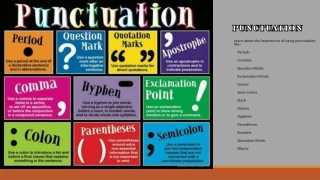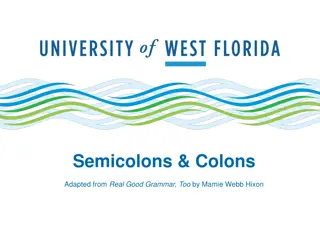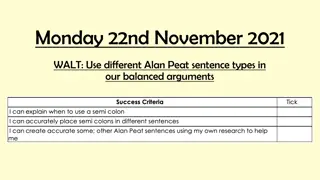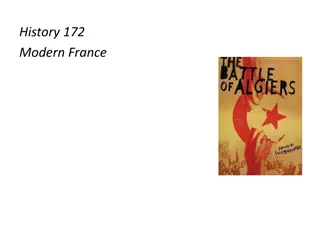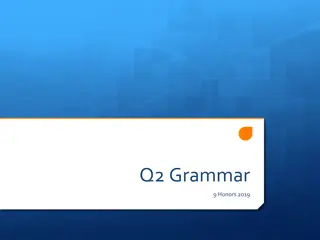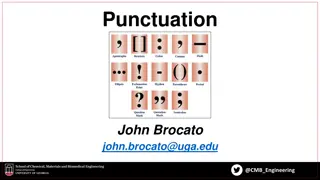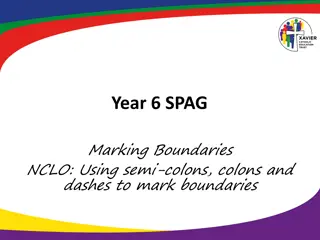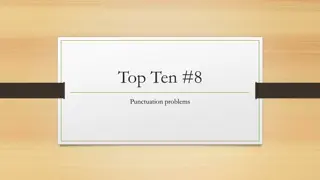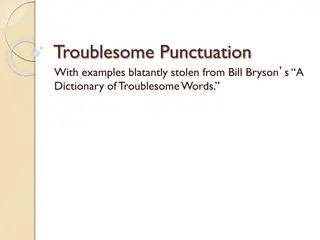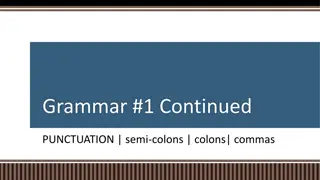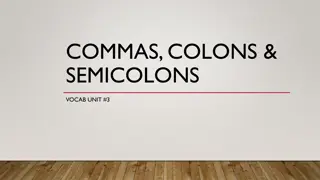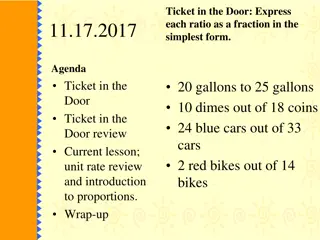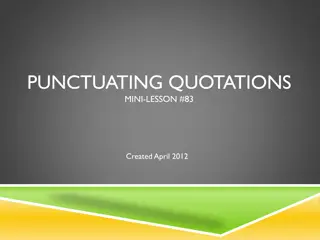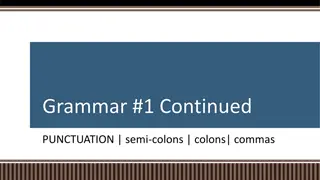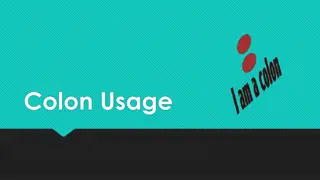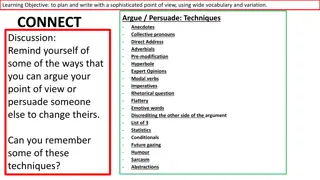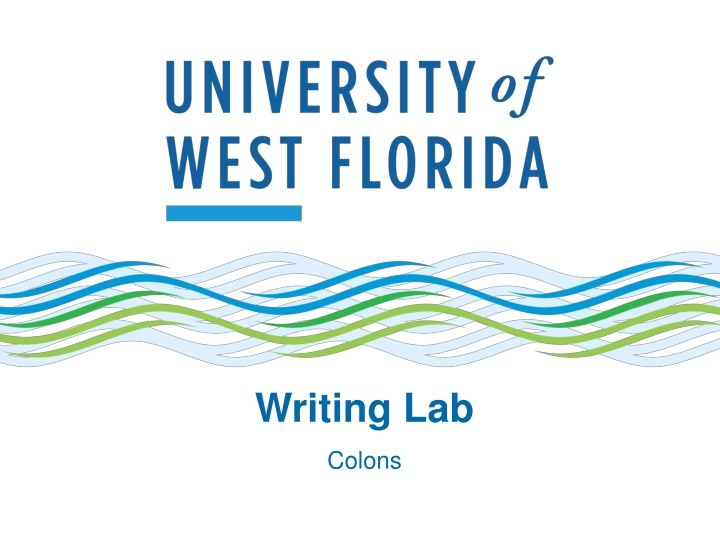
Mastering the Use of Colons in Writing
Understanding how to effectively utilize colons in your writing can enhance clarity and structure. This mini-lesson covers the correct usage of colons for introducing lists, replacing phrases like "such as" or "for example", and avoiding common mistakes. Improve your grammar skills with practical examples and tips from the UWF Writing Lab.
Download Presentation

Please find below an Image/Link to download the presentation.
The content on the website is provided AS IS for your information and personal use only. It may not be sold, licensed, or shared on other websites without obtaining consent from the author. If you encounter any issues during the download, it is possible that the publisher has removed the file from their server.
You are allowed to download the files provided on this website for personal or commercial use, subject to the condition that they are used lawfully. All files are the property of their respective owners.
The content on the website is provided AS IS for your information and personal use only. It may not be sold, licensed, or shared on other websites without obtaining consent from the author.
E N D
Presentation Transcript
Writing Lab Colons
Colons The colon is often used to introduce explanatory elements, often in the form of a list. The colon takes the place of such as, namely, or for example.
Colons cont. The colon must be preceded by a complete sentence. Correct: I hate this one course: English. Notice the full sentence before the colon. Note that your list may include only one word. Incorrect: One course that I hate: English is the course I am failing. The statement preceding the colon is not a full sentence.
Colons cont. 2 The colon takes the place of the following phrases: such as, for example, namely. Do not use these phrases in combination with the colon. Correct: Some mammals have no hair, namely, whales, porpoises, and bottle-nosed dolphins. Incorrect: Some mammals have no hair: namely, whales, porpoises, and bottle-nosed dolphins.
Colons cont. 3 Do not use a colon after a linking verb, which connects the subject to the complement. Correct: There are three parts to the chemistry course: lecture, recitation, and laboratory. Incorrect: The three parts of a chemistry course are: lecture, recitation, and laboratory.
Thats all, folks! This lesson is part of the UWF Writing Lab Grammar Mini-Lesson Series Lessons adapted from Real Good Grammar, Too by Mamie Webb Hixon To find out more, visit the Writing Lab s website where you can take a self-scoring quiz corresponding to this lesson

